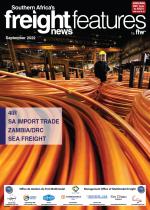Shippers exporting to Kenya are advised to ensure the correct conformity certificates are in place before loading cargo onto vessels.This comes as the Kenya Bureau of Standards (KEBS) reappointed SGS as the Pre-Export Verification of Conformity (PVoC) service provider for the sixth successive time.According to Johan Eksteen, SGS divisional manager for sub-Saharan Africa, SGS provides the service on behalf of KEBS for several countries, including India, Far East Asia, South and North America, the Middle East, UAE, Europe, and southern Africa.“PVoC is a quality verification programme which consists of documentary verification, f loor inspection of goods unpacked, final evaluation, and then the issue of a certificate before loading and shipping the goods.”He says all products imported into Kenya are subject to the PVoC programme except for those goods exempted by KEBS. Shippers are therefore advised to ensure they are compliant before loading vessels as any cargo that is not certified correctly will not be allowed to enter the country.SGS, explains Eksteen, is responsible for carrying out the product conformity assessments to ensure compliance with the applicable Kenyan regulations and standards.“PVoC prevents the importation of unsafe, substandard and/or counterfeit goods,” he says, indicating that it allows for the enforcement of obligatory legislation aimed at protecting consumers' health and safety as well as the environment.According to Eksteen, shippers have several options available to get conformity certification. “For sellers or exporters that ship the same product frequently, it is recommended they opt for product registration. Products shipped under this route are exempt from systematic testing and inspection as they have undergone prior registration by SGS.”Eksteen says this route offers a fast-track certification process for goods with consistent levels of quality and compliance, reduced levels of interventions, and accelerated procedures for processing files, with faster turnaround times.Manufacturers that ship the same product frequently are advised to choose product licensing. “This route is only available to manufacturers who can demonstrate the existence of a quality management system and acceptable quality control procedures in their production and manufacturing process,” says Eksteen. “Products shipped under this route are also exempt from systematic testing and inspection as they have undergone prior licensing by SGS. These shipments are, however, subject to random inspections before shipping of the consignment and issuance of the Certificate of Conformity (CoC).”Traders or manufacturers that ship infrequently and not the same product, however, have to have products tested and inspected to demonstrate conformity with the relevant standards and regulatory requirements before each shipment.“Products shipped under this route are not only unregistered and unlicensed but also shipped inf requently.”Exporters have to provide quality and or supporting documents for every shipment and consignment. “Furthermore, physical inspection is mandatory for every shipment,” says Eksteen, adding that according to the KEBS Notice published in the Kenya media, all consignments shipped from countries where KEBS has appointed inspection companies should be accompanied by the CoC, otherwise they will be liable for penalties.

